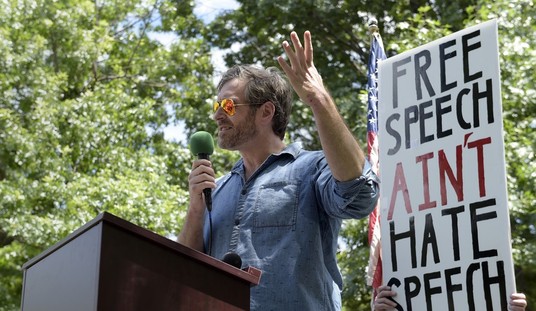Writing a couple of days ago in this space, I asked whether President Obama’s spectacular mishandling of the economy was a function of his incompetence or his malevolence.
For what it’s worth, I believe that the answer is (mostly) “incompetence.” I take little solace from that conclusion. For one thing, I also believe he is doing everything he can to capitalize on this crisis (hence the “mostly”), bludgeoning cautious lawmakers with the prospect of “catastrophe” if they don’t instantly fall into line with his eye-popping spending proposals.
Even more worrisome, however, is the fact that the President’s brand of good intentions is potentially more destructive than simple malevolence. In other words, although I believe that the President is endeavoring to “do good” after his own lights, his understanding of the good is unrealistic and utopian. And, as I observed yesterday, the combination of benevolence and moralism, which the President exhibits in an astonishing degree, is a union that regularly conduces to human unhappiness.
Perhaps you will remember that old advertisement for Teacher’s Scotch: “In life, experience is the great teacher. In Scotch, Teacher’s is the great experience.” Neatly phrased. Sadly, the first sentence is only intermittently true. Experience shows that experience is often a very poor teacher indeed. Hence the ghastly spectacle of a President of the United States in 2009 behaving like a shell-shocked socialist circa 1935.
A few days ago, Michael Boskin had a melancholy piece in The Wall Street Journal called “Obama’s Radicalism is Killing the DOW.” The article has some revelatory things to say about its announced topic, but more troubling is the big picture. “The illusion that Barack Obama will lead from the economic center,” Boskin observes, “has quickly come to an end.”
Instead of combining the best policies of past Democratic presidents — John Kennedy on taxes, Bill Clinton on welfare reform and a balanced budget, for instance — President Obama is returning to Jimmy Carter’s higher taxes and Mr. Clinton’s draconian defense drawdown.
Mr. Obama’s $3.6 trillion budget blueprint, by his own admission, redefines the role of government in our economy and society. The budget more than doubles the national debt held by the public, adding more to the debt than all previous presidents — from George Washington to George W. Bush — combined. It reduces defense spending to a level not sustained since the dangerous days before World War II, while increasing nondefense spending (relative to GDP) to the highest level in U.S. history. And it would raise taxes to historically high levels (again, relative to GDP). And all of this before addressing the impending explosion in Social Security and Medicare costs.
In other words, not only are the President’s naive and utopian fiscal policies exacerbating an already parlous economic situation: his starry-eyed understanding of foreign relations is set to compromise America’s defense capabilities at the very moment when other parts of the world–Iran, Russia, China–are struggling madly to upgrade their military forces.
But let’s just stick with the economic picture.
Mr. Obama has bravely said he will deal with the projected deficits in Medicare and Social Security. While reform of these programs is vital, the president has shown little interest in reining in the growth of real spending per beneficiary, and he has rejected increasing the retirement age. Instead, he’s proposed additional taxes on earnings above the current payroll tax cap of $106,800 — a bad policy that would raise marginal tax rates still further and barely dent the long-run deficit.
Increasing the top tax rates on earnings to 39.6% and on capital gains and dividends to 20% will reduce incentives for our most productive citizens and small businesses to work, save and invest — with effective rates higher still because of restrictions on itemized deductions and raising the Social Security cap. As every economics student learns, high marginal rates distort economic decisions, the damage from which rises with the square of the rates (doubling the rates quadruples the harm). The president claims he is only hitting 2% of the population, but many more will at some point be in these brackets. . . .
The president’s proposed limitations on the value of itemized deductions for those in the top tax brackets would clobber itemized charitable contributions, half of which are by those at the top. This change effectively increases the cost to the donor by roughly 20% (to just over 72 cents from 60 cents per dollar donated). Estimates of the responsiveness of giving to after-tax prices range from a bit above to a little below proportionate, so reductions in giving will be large and permanent, even after the recession ends and the financial markets rebound.
A similar effect will exacerbate tax flight from states like California and New York, which rely on steeply progressive income taxes collecting a large fraction of revenue from a small fraction of their residents. This attack on decentralization permeates the budget — e.g., killing the private fee-for-service Medicare option — and will curtail the experimentation, innovation and competition that provide a road map to greater effectiveness.
The economic and social perils of centralized, top-down, big-government intrusion are as well established as it is possible for a public policy to be. We know they lead to lower growth, dependency, and the atrophy of entrepreneurial will. We know this because we have seen it happen again and again for more than a century. And yet, here we are in 2009 poised to travel down that gruesome road to serfdom once more. Will we never learn?









Join the conversation as a VIP Member